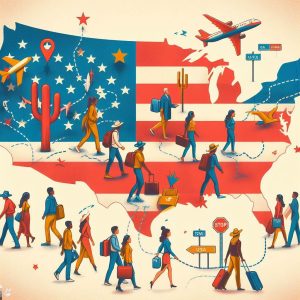While Millennials have led the charge in redefining work cultures towards greater flexibility and work-life balance, Generation Z has taken these concepts further, integrating their work with their personal values and leveraging technology for greater autonomy. Both generations show a nuanced approach to finances, balancing the need for security with the desire for meaningful experiences. Let us delve deeper into how these generational traits manifest in the workplace and what drives their work ethics and preferences.
Millennials (Generation Y):
- Digital Pioneers: Millennials experienced the transition from analog to digital. For instance, they witnessed the evolution from landline phones to smartphones and from physical mail to email, making them adaptable and resourceful with new technologies. They are often seen bridging traditional and modern practices in the workplace.
- Work-Life Balance: They value flexibility, such as options for remote working or flexible hours. Companies like Google and Netflix have been trendsetters in offering such flexibility, appealing greatly to the Millennial workforce.
- Career Progression: Millennials are known for their “lattice” approach to career development, as opposed to a linear path. They might switch careers or roles to gain a broad spectrum of experiences. For example, a Millennial might start in marketing and shift to a tech role to diversify their skill set.
- Purpose-Driven: They seek roles in organizations with corporate social responsibility. Companies with a strong stance on sustainability or community involvement, like Patagonia, are particularly attractive to them.
- Collaborative Environment: They thrive in environments where teamwork and collaboration are encouraged, like co-working spaces. They also value mentorship programs and continuous feedback.
- Tech-Savvy yet Traditional: While comfortable with technology, they also appreciate face-to-face meetings and traditional forms of communication, providing a hybrid approach to workplace interactions.
- Work-Life Balance: They were instrumental in the shift towards remote working, valuing the flexibility it offers. However, they also appreciate the social aspects and networking opportunities that an office environment provides.
- Working in Office vs Working Remotely: They were instrumental in the shift towards remote working, valuing the flexibility it offers. However, they also appreciate the social aspects and networking opportunities that an office environment provides.
- Fixed Working Times vs Flexible Timings Preference: They generally prefer flexible working hours over the traditional 9-to-5 schedule. This flexibility allows them to manage personal commitments and avoid burnout, leading to a more balanced lifestyle.
- Retirement Savings vs Spending Habits: Having experienced economic upheavals like the 2008 financial crisis, Millennials are cautious but optimistic about savings. They tend to save for retirement but are also known for spending on experiences like travel and dining.
Generation Z:
- Digital Natives: Gen Z’s proficiency with digital tools like social media platforms, cloud services, and mobile apps is inherent. They are quick to adopt new technologies and integrate them into their work processes seamlessly.
- Financial Pragmatism: Growing up during economic uncertainties, they are more cautious about their financial security. This generation might prefer roles in established companies over startups for the perceived stability.
- Entrepreneurial Spirit: Many in Gen Z display a strong desire to start their own businesses or work in startups. Platforms like Kickstarter and Etsy have enabled this entrepreneurial spirit.
- Value Stability and Security: Their preference for stability can be seen in their attraction to roles with clear career paths and comprehensive benefits, contrasting the Millennial tendency to job-hop.
- Diversity and Inclusivity: They seek employers who not only talk about diversity and inclusivity but actively implement policies and practices. For example, Gen Z workers might favor companies with diverse leadership and inclusive company cultures.
- Efficiency and Tech Integration: Their ability to multitask and use technology efficiently is notable. For instance, they might leverage apps for time management or project management to streamline workflows.
- Direct and Fast-Paced Communication: Preferring concise and direct communication, they are more likely to use platforms like Slack or Teams for quick, informal interactions, moving away from lengthy emails.
- Socially Conscious: Gen Z is also characterized by a strong social and environmental consciousness. They are drawn to companies that align with their social values and are often vocal about social issues in and out of the workplace.
- Mental Health Awareness: This generation places a high importance on mental health, advocating for policies and practices that support well-being, such as mental health days and wellness programs.
- Work-Life Balance: While they also value work-life balance, Gen Z’s approach is more integrated. They are inclined towards jobs that offer a seamless blend of personal and professional life, often seeking roles that resonate with their personal identities and passions.
- Working in Office vs Working Remotely: Having entered the workforce during or after the COVID-19 pandemic, Gen Z is more accustomed to remote or hybrid work models. They value the efficiency and autonomy of remote work but might also seek in-office experiences for collaboration and learning.
- Fixed Working Times vs Flexible Timings Preference: This generation takes flexibility a step further, often favoring results-oriented work environments where the focus is on achieving goals rather than clocking specific hours. They are comfortable with unconventional working hours if it means greater efficiency and autonomy.
- Retirement Savings vs Spending Habits: Witnessing economic volatility from a young age, Gen Z tends to be more conservative with their finances. They are more likely to start saving for retirement early and are generally more frugal in their spending habits, often prioritizing long-term financial security over immediate gratification.
In summary, while Millennials blend the traditional with the modern, seeking purpose and collaboration, Generation Z leans heavily into technology, pragmatism, and social consciousness. Both generations contribute unique perspectives and skills, shaping a dynamic and evolving workplace.



